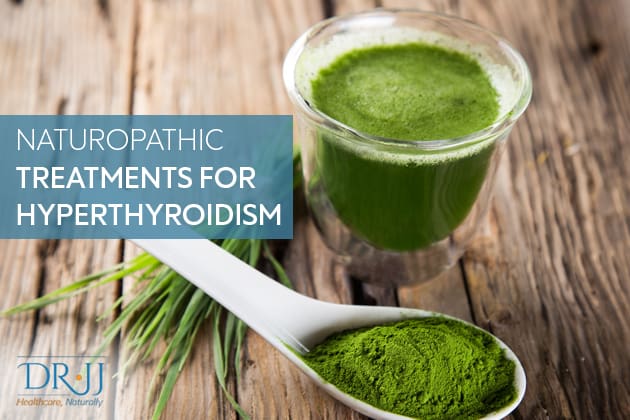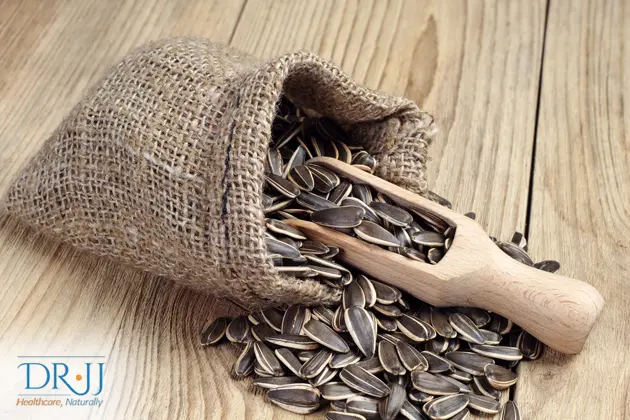
Hormones are chemical messengers which control the way your body functions.
Some hormones you’re likely familiar with include:
- Insulin, which helps your body control blood sugar levels
- Cortisol, responsible for controlling your stress response
- Melatonin, which helps with sleep
- Adrenaline (epinephrine), which prepares your body for its “fight or flight” response
- Estrogen and testosterone which are known as the female and male sex hormones, respectively
Some important hormones you may not be as familiar with are those produced by your thyroid gland.
Your thyroid hormones consist of T3, or triiodothyronine and T4, thyroxine.
They control everything from metabolism and growth to body temperature and heart rate.
Having an imbalance of hormones can have major effects on your health.
As a naturopathic doctor in Toronto, I want to help you be able to recognize when things in your body might be off kilter.
Today we’re going to look specifically at what can happen if your thyroid gland produces too much thyroid hormone.
This condition is known as hyperthyroidism.
Keep reading to find out more about what happens to your body when your thyroid gland goes into overdrive.
What Is Hyperthyroidism?
Your thyroid gland is a small, butterfly shaped gland located at the front of your throat.
It’s responsible for producing thyroid hormones.
These control many of your bodily functions, including growth and metabolism.
When your thyroid gland is overactive, it produces excess amounts of thyroid hormone.
This is hyperthyroidism.
An overactive thyroid gland can also result in swelling, called a goiter.
How Do You Know If You Have Hyperthyroidism?
Having an overactive thyroid will cause you to have too much thyroid hormone in your system.
If you experience this, you may notice the following symptoms:
- Becoming overheated easily
- Feeling overly irritable
- Having trouble sleeping, despite feeling tired
- Feeling nervous
- Thinning, brittle hair
- Thinning skin
- Muscle weakness
- Increased bowel movements
- Diarrhea
- Irregular menstrual cycle
- Hand tremors
- Hypertension (high blood pressure)
- Sweating more than usual
- Weight loss, despite no changes to diet or exercise routines
- Irregular heartbeat and heart palpitations
- Tachycardia (rapid heartbeat greater than one hundred beats per minute)
How Do You Get Hyperthyroidism?
The most common cause of hyperthyroidism is a condition called Graves’ disease.
Graves’ disease is an autoimmune condition, in which your immune system targets your thyroid gland.
It causes your body to make an antibody called thyroid stimulating immunoglobin.
As a result, excess amounts of thyroid hormone are released.
This condition is seen more often in women and is passed down through genetics.
Some causes of hyperthyroidism, other than Graves’ disease, include:
- Nodules on the thyroid (either cancerous or benign)
- Inflammation of the thyroid gland
- Excess amounts of the thyroid hormone T4 in the blood
- Getting too much iodine
- Tumors on the testes or ovaries
Factors which can put you at a higher risk for hyperthyroidism include:
- Being sixty or older
- Being female
- Family history of hyperthyroidism
- Imbalances of other hormones
- Exposure to environmental toxins
- Pregnancy
- Leaky gut syndrome
- Other health conditions
- Food allergies
Naturopathic Hyperthyroidism Treatments
If you have hyperthyroidism, there are a number of naturopathic methods to help manage it and keep your symptoms under control.
Let’s look at some of them now.
1. Eat These Thyroid Friendly Foods…
What you eat has a huge impact on how you feel and how your body works.
It’s what gives you the fuel you need to function, after all.
If you want to improve your thyroid function, focus on a reduced iodine diet.
To do this, eat foods that improve your thyroid health.
This could look like:
- Anti inflammatory herbs, such as rosemary, basil, and oregano
- Potatoes
- Non iodized salt
- Honey
- Maple syrup
- Bone Broth
- Popcorn (unsalted, or with non-iodized salt)
- Fresh fruit
- Cruciferous vegetables
- Lean proteins
- Unsalted nuts
- Egg whites
- Green juices, especially those made from spirulina, spinach and kale
2. …And Avoid These Foods
And while we’re talking about food, here are some to avoid:
- Milk and dairy products
- Sugar
- Cheese
- Processed foods
- Grain products
- Artificial dyes and flavouring
- Poultry and beef in large amounts
- Foods rich in iodine, such as seaweed (dulse and kelp)
- Iodized salt
- Seafood
- Gluten
3. Get Enough B Complex Vitamins
If you have an overactive thyroid, it’s very likely you also have a deficiency in B vitamins, and vitamin B12 in particular.
A vitamin B12 deficiency can result in you feeling tired, dizzy, and weak.
Taking a B complex vitamin supplement can help with these symptoms.
However, it won’t actually treat your hyperthyroidism.
B vitamins are generally safe, as they are water soluble and excess amounts are excreted through your pee.
Even so, it’s generally a good idea to speak to your healthcare provider before starting a new supplement.
RELATED: The Basics On Vitamins
4. Try An L Carnitine Supplement
L-carnitine is an amino acid which is produced naturally in your liver and kidneys.
Carnitine blocks thyroid hormones from entering some cells.
It may be beneficial for prevention and reversal of hyperthyroidism symptoms.
In particular, it can help with tremors, fatigue, and heart palpitations.
5. Get Enough Selenium
Selenium is an essential mineral.
It’s found in a variety of foods, as well as in water and soil.
Low levels of selenium are associated with a higher risk of Graves’ disease, one of the main causes of hyperthyroidism.
Some foods high in selenium include:
- Mushrooms
- Tea
- Rice
- Brazil nuts
- Chia seeds
- Sunflower seeds

6. Herbal Solutions
There are some herbal remedies that can calm an overactive thyroid as well.
The selection of herbal medicines will depend on your symptoms and their severity.
Lemon balm (Melissa officinalis) and bugleweed (Lycopus europaeus) are possible treatment options.
The dosing and timing of these must be done with care and under naturopathic supervision, though.
If you’re considering these options, book an appointment with me, Dr. JJ, first.
7. Medications, Radioactive Iodine, And Surgery
In some cases, your medical doctor may elect to prescribe medications to calm your heart.
These may include beta blockers (for example, propranolol) or antithyroid medications to suppress the production of thyroid hormone, such as methimazole (Tapazole).
In severe cases, your thyroid may need to be treated with radioactive iodine.
Radioactive iodine damages your thyroid cells, resulting in your thyroid shrinking in size and producing less thyroid hormone.
Surgery is also an option, usually as a last resort.
The thyroid is removed by a surgeon, the process is called a thyroidectomy.
8. Supplements
There is a fine balance between calming an overactive thyroid and causing permanent thyroid damage.
There is the art to treating hyperthyroidism.
Reducing excess hormone, stabilizing your thyroid, and preventing it from burning out where you may require prescription thyroid hormone daily for the rest of your life.
I can help you walk this fine line during hyperthyroidism.
Possible Complications From Hyperthyroidism
If hyperthyroidism goes untreated, it can lead to a number of significant complications.
Hyperthyroidism causes your body to use work extra hard, and this can have adverse effects on your cardiovascular health.
Some of the heart related complications from hyperthyroidism include:
- Congestive heart failure
- Thinning heart muscle
- Abnormal heartbeat
- High blood pressure
- Sudden cardiac arrest
In addition to heart issues, hyperthyroidism can result in your body excreting calcium and phosphorus.
These minerals are important for bone health, and not having enough of them can lead to brittle bones and osteoporosis.
Questions? Ask Dr. JJ!
Have you experienced weight loss even though your diet and exercise habits haven’t changed much?
Do you find you’re sweating more often, and more easily than you used to?
Maybe you’re dealing with insomnia, or you’re overheating easily.
These are all potential signs of an issue with your thyroid gland.
I’m Dr, JJ, a naturopathic doctor in Toronto.
If you’re experiencing symptoms of hyperthyroidism, or any number of other conditions, I can help.
I’ll work with you to develop a plan to provide treatment for your symptoms, as well as getting to the root causes of your condition.
Book your appointment with me, Dr. JJ, today.
If you have questions about naturopathic medicine, or you’d like to take your first step into the world of naturopathy, contact me, Dr. JJ, and let’s book an appointment.
Yours in health,
Dr. JJ Dugoua, Naturopathic Doctor
600 Sherbourne St, Suite 315,
Toronto, ON M4X 1W4
-https://goo.gl/maps/6VDXwiCihRpDRo5A9
Dr. JJ Dugoua is a naturopathic doctor in Toronto and has a PhD in Pharmaceutical Sciences. His clinic provides solutions for many health concerns and has a special focus on thyroid health issues.


